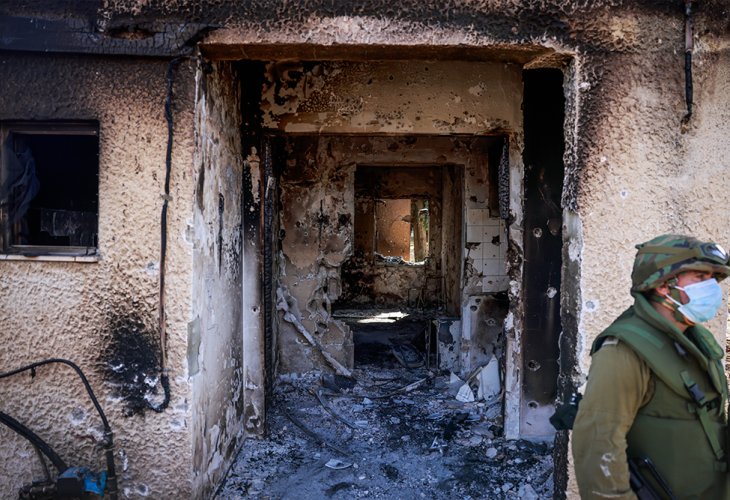Faith
Finding Strength After Tragedy: Responding to National Trauma with Compassion and Faith
Reflections on grief, resilience, and the importance of emotional support.
 (Photo: Chaim Goldberg / Flash90)
(Photo: Chaim Goldberg / Flash90)I want to take you back to the night after Simchat Torah—a dark and devastating day that struck us in the deepest, most painful way imaginable. As the horrific stories began to emerge, our celebration turned to mourning. I watched the horrors unfold, trying to check on the wellbeing of several friends (my son used to live in the Gaza Envelope, so we personally knew many people from that area. Sadly, as I write these lines, the fate of some of them is still unknown). There are no words that can fully capture the horror of what we felt.
Then came the reactions. Some people rushed to assign blame for the failures, while others suddenly became security experts and started giving out “brilliant” advice. Some began finding hints in gematria (numerical codes in Hebrew), and others simply demanded revenge.
There’s no way to fully grasp or contain this kind of pain. It’s truly incomprehensible. Maybe, in time, we’ll come to understand something. Maybe. There is such a thing as comfort—looking back from a higher, eternal perspective. But that’s a process. It takes time. In Jewish tradition, before the “Haftarot of Consolation” (the seven prophetic readings of comfort), we first move through the “Haftarot of Calamity.” Mourning must come before comfort. It’s a necessary step. You can’t skip it.
The rush to find answers or consolation too soon is premature. As the sages said: “Do not comfort someone while their dead still lies before them.” A mourner in the early stages of grief is not ready to receive comfort. This is the stage of “And Aaron was silent”. All those who tried to interpret G-d's actions at this moment only made me feel more distant. This was not the time for explanations, and certainly not the time to spread dark, despairing videos. We're not post-trauma—the trauma is still happening. Our responses, especially as parents, must be sensitive and appropriate.
I remember during Operation Guardian of the Walls, I spoke with Rabbi Uri Zohar. He taught me that we should ask G-d for the strength to endure these painful times. Just like King David, of blessed memory, pours out his pain and struggles in the Psalms—he doesn’t ignore them—we too must honestly tell G-d how hard this is for us. Only then can we begin to receive deeper understanding, and open our hearts to the redemptive meaning behind the suffering. That’s what I tried to do, while filtering out some of the background noise that only made me feel more depressed and hopeless. That’s what helped me keep my head just barely above water.
Then I got a phone call from someone named Elia. I didn’t recognize his name or his voice. He said that he had prayed with me during Rosh Hashanah, and had spoken with my son, who mentioned living in the Gaza Envelope. He called to ask how we were doing and if we needed anything. I told him how moved I was that he thought of me, and he shared that years ago, he had lost his own son. At one point in his grieving process, he realized that in order not to collapse under the weight of pain, he had to turn it into something meaningful. He chose to use his suffering as a springboard, to care for others and support them in whatever way they needed.
Maybe that’s our role right now. (Who knows what will happen by the time these words are read.) We need Psalms and prayers for mercy on the people of Israel. And we need to cling to anything that gives us strength for the difficult journey ahead. Most of all, we need to care for those around us, especially our children and teens.
“It is a time of trouble for Jacob, but from it he will be saved.”

